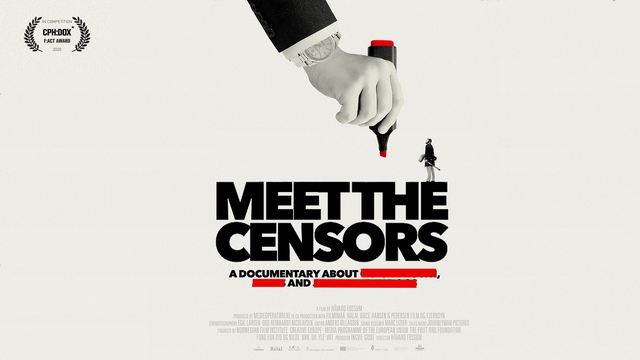Meet The Censors
Censorship: lifting the lid on those calling all the shots
 From a Kafkaesque office for social media in Germany and a South Sudan military headquarters, to conversations with an Iranian Ayatollah and Chinese news editor, Norwegian filmmaker Håvard Fossum intimately follows the daily working lives of the censors. With remarkable access to a secretive world, we get a rare insight into the ways information is controlled, from the Communist Party in Beijing to the corridors of power in Washington.
From a Kafkaesque office for social media in Germany and a South Sudan military headquarters, to conversations with an Iranian Ayatollah and Chinese news editor, Norwegian filmmaker Håvard Fossum intimately follows the daily working lives of the censors. With remarkable access to a secretive world, we get a rare insight into the ways information is controlled, from the Communist Party in Beijing to the corridors of power in Washington.

You’ll hear the rationale of the government in South Sudan for keeping journalists on a frighteningly tight leash; and you’ll be introduced to some of the most controversial figures in India, namely the hard-working men of the Board of Film Certification, better known as the Censor Board. Partly observing, partly informally interacting, Fossum steps into the workday of the representatives of state who are, in one way or the other, censoring expression. In Meet the Censors we get to see the inside of their largely unknown world, giving you the practitioners' accounts of why they censor. And just when you thought you’re watching a film about the world's most notorious censors; trotting around in military HQs; sitting in the study of one of the most powerful Ayatollahs in Shia Islam: we turn the camera to the West. Inside the Federal Ministry of Justice in Germany, we join the State Secretary and his political advisers who are preparing for a new law to take effect, one that is hoped to combat online hate speech. We see how they strive to make the blood-smelling press and perplexed Facebook-users understand the good in the law. While liberalists complain of “Stasi methods” reminiscent of the censorship in communist East Germany, critics on the left accuse the state of outsourcing work to private companies that should be carried out by judicial bodies. And in a secret building in Bonn, the state’s legal team of forty and two psychologist (to help the experts handle the effects of looking at potentially disturbing images) try to make sense of a legislative framework in which unclear notions such as slander and knowing what is satire, creates massive headaches. And more difficult yet: figuring out just when they are supposed to use the power they have been vested, to fine social media companies up to 50 million euros for failing to remove hate speech.
The thesis is even more severely tested the USA. In an attempt to find out how much of our freedom of expression we’re giving up in the name of national security and protecting the economy, we see the chilling effect of mass surveillance and the hunting down of whistleblowers. Just as troubling is learning how parliamentarian tools are used by politicians closely tied to energy companies to silence climate scientists. Scholars such as Miklós Haraszti, Richard Burt and Robert Darnton claim that censorship is more complex than we assume - it could even be seen as an intellectual vocation. With amused wonder, genuine curiosity and not a small touch of angst, Fossum takes you with him inside the secret circles of the bureaucrats, the moral keepers, and the hitherto invisible others with power to control information – people who may or may not be genuinely concerned with making the world a better place. We learn that there are understandable reasons for wanting to get rid of polarising, hateful or destabilising speech, and that censors might react quite like we would to that which scares us. But the effect of censorship appears at times to be unjustifiably severe, ineffective at making the society a better one, and in most cases ruining our possibility to debate controversial matters with one another.







